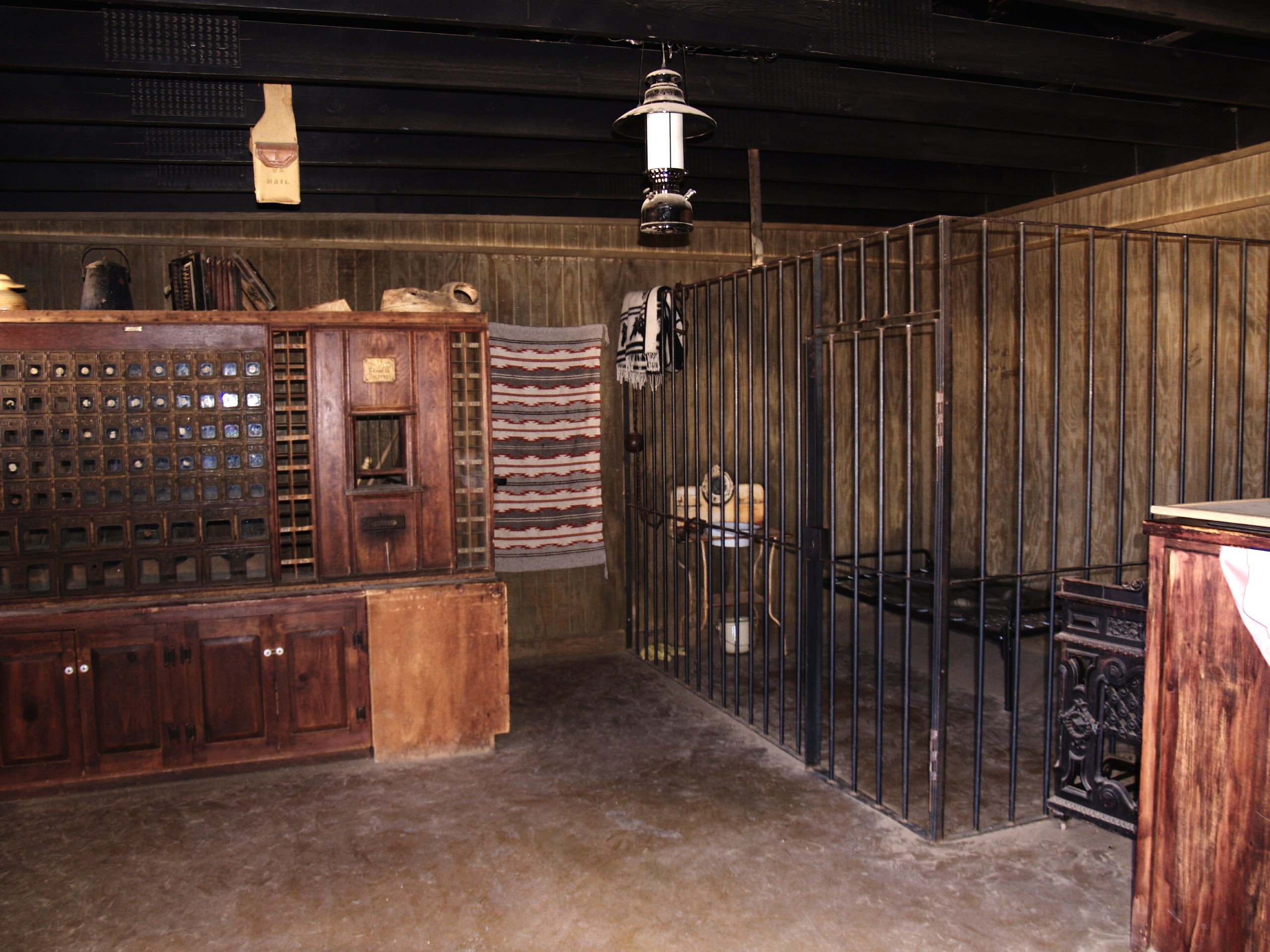 A personal injury claim requires following specific rules and procedures to ensure a fair and just resolution. For Joseph Barlow, who slipped and fell while detained at the Lafayette Correctional Facility, his failure to adhere to the correction center’s administrative remedies became critical. This article examines the consequences Barlow faced when he disregarded the proper procedures and highlights the significance of following the established protocols.
A personal injury claim requires following specific rules and procedures to ensure a fair and just resolution. For Joseph Barlow, who slipped and fell while detained at the Lafayette Correctional Facility, his failure to adhere to the correction center’s administrative remedies became critical. This article examines the consequences Barlow faced when he disregarded the proper procedures and highlights the significance of following the established protocols.
Joseph Barlow was detained at the Lafayette Correctional Facility, where he slipped and fell in a puddle of water on two different occasions. Barlow claims an open pipe allowed water to overflow onto the floor. He filed a lawsuit against the Director of Corrections for Lafayette Parish, the Sheriff of Lafayette Parish, and the insurance company for injuries sustained to his neck and back. The defendants filed an exception of prematurity, claiming Barlow did not look at all of the remedies provided by the correction center’s handbook. The defendants also filed an exception of prescription and abandonment. A trial court sustained all of the defendants’ motions, and Barlow’s claims were dismissed. Barlow appealed.
In the appeal, Barlow claimed the trial court erred in granting the exception of prematurity. He first argued the handbook did not mention the procedures for injury claims resulting from negligence. He then argued the defendants had notice of the danger from the pipe. Lastly, Barlow claimed he did not receive an up-to-date handbook and was not informed of its alterations.
 Insurance Dispute Lawyer Blog
Insurance Dispute Lawyer Blog


 The separation of property between spouses is a legally recognized process, allowing them to transfer assets. However, what happens when this separation is done with fraudulent intent? In the case of Kathryn and Paul Holland, creditors accused the couple of fraudulently dividing their assets to avoid payment. The creditors filed a motion to intervene in the divorce proceedings, alleging that the Hollands knew about pending civil lawsuits against them. Despite their objections, the trial court granted the motion filed by Ms. Holland, prompting the creditors to appeal the decision. The following post summarizes the appeal.
The separation of property between spouses is a legally recognized process, allowing them to transfer assets. However, what happens when this separation is done with fraudulent intent? In the case of Kathryn and Paul Holland, creditors accused the couple of fraudulently dividing their assets to avoid payment. The creditors filed a motion to intervene in the divorce proceedings, alleging that the Hollands knew about pending civil lawsuits against them. Despite their objections, the trial court granted the motion filed by Ms. Holland, prompting the creditors to appeal the decision. The following post summarizes the appeal.  When pursuing a legal claim against an employer regarding adverse employment actions, it is crucial to grasp the necessary elements required for a successful case. Failure to establish all essential components can result in the dismissal of your claim. The following lawsuit examines the circumstances of Lori Rayborn, a nurse at a high school in Bossier Parish, who faced alleged retaliation after expressing concerns about the administration’s handling of a student’s health needs. Despite her efforts to seek legal redress, Rayborn’s claims were ultimately dismissed.
When pursuing a legal claim against an employer regarding adverse employment actions, it is crucial to grasp the necessary elements required for a successful case. Failure to establish all essential components can result in the dismissal of your claim. The following lawsuit examines the circumstances of Lori Rayborn, a nurse at a high school in Bossier Parish, who faced alleged retaliation after expressing concerns about the administration’s handling of a student’s health needs. Despite her efforts to seek legal redress, Rayborn’s claims were ultimately dismissed. We have all heard that “good fences make good neighbors.” But what happens when there is a dispute about the boundary of two pieces of property? The following conflict between New Fellowship Baptist Church and the Beals, who found themselves at odds over the boundary of their adjoining properties, helps answer this question. The dispute raises questions about the concept of acquisitive prescription, the importance of possession, and the determination of boundaries. By carefully examining the trial and appellate court’s rulings, we gain insights into the legal principles and the significance of seeking professional advice in property-related conflicts.
We have all heard that “good fences make good neighbors.” But what happens when there is a dispute about the boundary of two pieces of property? The following conflict between New Fellowship Baptist Church and the Beals, who found themselves at odds over the boundary of their adjoining properties, helps answer this question. The dispute raises questions about the concept of acquisitive prescription, the importance of possession, and the determination of boundaries. By carefully examining the trial and appellate court’s rulings, we gain insights into the legal principles and the significance of seeking professional advice in property-related conflicts. The process of filing insurance claims can be time-consuming, demanding careful attention from all parties involved. In a recent ruling by the First Circuit Court of Appeal in Louisiana, the importance of timely and exhaustive pursuit of administrative remedies before seeking judicial review in insurance payment disputes was underscored. The case of Southern Framers of Louisiana, LLC (Southern Framers) sheds light on the consequences of premature legal action, emphasizing the need to explore alternative avenues, such as administrative proceedings, before resorting to the courts. Through an examination of Southern Framers’ dispute with a healthcare provider, this ruling serves as a valuable reminder for future litigants to exhaust administrative remedies diligently and consider the proper timing and procedures in pursuing legal recourse.
The process of filing insurance claims can be time-consuming, demanding careful attention from all parties involved. In a recent ruling by the First Circuit Court of Appeal in Louisiana, the importance of timely and exhaustive pursuit of administrative remedies before seeking judicial review in insurance payment disputes was underscored. The case of Southern Framers of Louisiana, LLC (Southern Framers) sheds light on the consequences of premature legal action, emphasizing the need to explore alternative avenues, such as administrative proceedings, before resorting to the courts. Through an examination of Southern Framers’ dispute with a healthcare provider, this ruling serves as a valuable reminder for future litigants to exhaust administrative remedies diligently and consider the proper timing and procedures in pursuing legal recourse. In a society built upon the principles of justice and fairness, few experiences can be as devastating as being wrongfully accused of a crime, subsequently arrested, and imprisoned for a wrongdoing one did not commit. The ramifications of such a traumatic ordeal can be profound, leaving individuals grappling with profound emotional, psychological, and even physical consequences. In the face of such injustice, victims must be allowed to seek justice and hold accountable those responsible for their unwarranted suffering.
In a society built upon the principles of justice and fairness, few experiences can be as devastating as being wrongfully accused of a crime, subsequently arrested, and imprisoned for a wrongdoing one did not commit. The ramifications of such a traumatic ordeal can be profound, leaving individuals grappling with profound emotional, psychological, and even physical consequences. In the face of such injustice, victims must be allowed to seek justice and hold accountable those responsible for their unwarranted suffering.  Safeguarding your property rights is of utmost importance, as the consequences of inadequate protection can be far-reaching. While oil and gas rights disputes may not directly affect the average citizen, other property-related conflicts can significantly impact individuals and their assets. In such complex situations, navigating the intricacies of property laws requires the expertise of an experienced attorney who can empower you with a clear understanding of your rights, ensure the legal protections you are entitled to, and advocate on your behalf. The following lawsuit shows the importance of expert counsel in understanding your property rights.
Safeguarding your property rights is of utmost importance, as the consequences of inadequate protection can be far-reaching. While oil and gas rights disputes may not directly affect the average citizen, other property-related conflicts can significantly impact individuals and their assets. In such complex situations, navigating the intricacies of property laws requires the expertise of an experienced attorney who can empower you with a clear understanding of your rights, ensure the legal protections you are entitled to, and advocate on your behalf. The following lawsuit shows the importance of expert counsel in understanding your property rights.  When an item is repaired, it is reasonable to expect it to be safe and free of defects upon its return. However, when an injury occurs after a product’s repair, the injured party is entitled to seek damages. For example, Joe McPherson suffered a knee injury after the battery compartment of a tractor, which Ronald Dauzat repaired, fell apart. The question of negligence and responsibility arose, leading to a legal dispute and subsequent appeal.
When an item is repaired, it is reasonable to expect it to be safe and free of defects upon its return. However, when an injury occurs after a product’s repair, the injured party is entitled to seek damages. For example, Joe McPherson suffered a knee injury after the battery compartment of a tractor, which Ronald Dauzat repaired, fell apart. The question of negligence and responsibility arose, leading to a legal dispute and subsequent appeal. Honesty is always the best policy. This proverb rings especially true in the legal system, where truthfulness and transparency are vital to maintaining the legal process. Failure to tell the truth or even a mistake in remembering the facts can bring severe consequences, as Mark and Paulette Moore discovered after a car accident on Interstate 10 in Iberville Parish.
Honesty is always the best policy. This proverb rings especially true in the legal system, where truthfulness and transparency are vital to maintaining the legal process. Failure to tell the truth or even a mistake in remembering the facts can bring severe consequences, as Mark and Paulette Moore discovered after a car accident on Interstate 10 in Iberville Parish. Even if you have a unique job like a stunt performer, you can still get brought down to Earth by the complexities of determining what your insurance policies do and do not cover if you are involved in an insurance coverage dispute. In that case, it is important to understand the plain language of your insurance contract, how different provisions in the policy interact, and how courts interpret insurance policies.
Even if you have a unique job like a stunt performer, you can still get brought down to Earth by the complexities of determining what your insurance policies do and do not cover if you are involved in an insurance coverage dispute. In that case, it is important to understand the plain language of your insurance contract, how different provisions in the policy interact, and how courts interpret insurance policies.